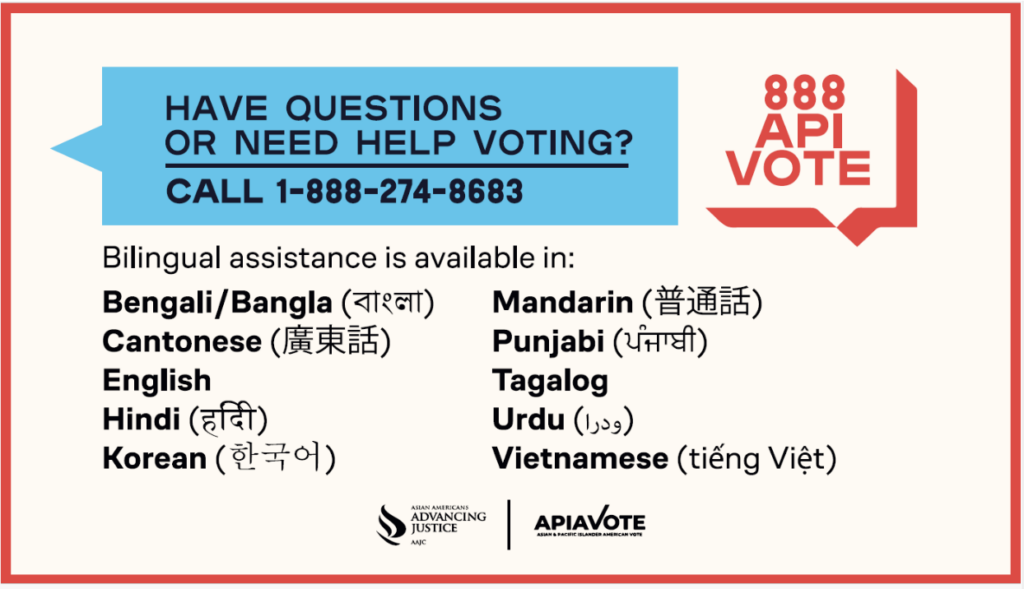
Volunteer hours can be logged for legal professionals needing pro-bono hours
Our partners at Asian and Pacific Islander American Vote (APIAVote) and Asian Americans Advancing Justice (AAJC) are recruiting bilingual volunteers to staff the APIAVote Voter Hotline for the 2024 Presidential Election season.
This is a non-partisan, multilingual informational hotline designed to help members of our community find polling places, understand how to register to vote, and ensure they have timely and factual information needed to get to the polls. Training sessions started on September 22 and upcoming sessions are on September 24 and October 9!
APIAVote needs persons fluent in Bengali/Bangla, Cantonese, Hindi, Korean, Mandarin, Punjabi, Tagalog, Urdu, and Vietnamese! Lawyers are trusted civic emissaries and voices in our communities, and your voice matters and helps!

As a completely volunteer-run hotline, volunteers will provide the resource to make civic engagement more accessible to the communities.
Here is what you can expect as a volunteer:
- Provide live, remote assistance from Monday, October 7, leading up to Election Day on Tuesday, November 5!
- Return calls to voters who left voicemails asking for voter assistance
- Be supported every step of the way by the co-captains of APIA Vote’s Hotline: Jean Ger, Zaria Guignard, Mike Messina, Hannah Locop, and Yu Jing Chen
- Hotline captains will be online and available to assist every day
- No prior experience is required – all training will be provided via Zoom throughout the election cycle.
Will you volunteer for the election protection hotline throughout the 2024 Presidential Election cycle? Sign up here!
| You can sign up for a training session below. |
| Tuesday, September 24 at 9:00 PM ET/8:00 PM CT/6:00 PM PT: Sign up here Wednesday, October 9 at 5:30 PM ET/4:30 PM CT/2:30 PM PT: Sign up here |
Additional training sessions will be announced in the future.
Please share widely with anyone you believe would like to get involved!





